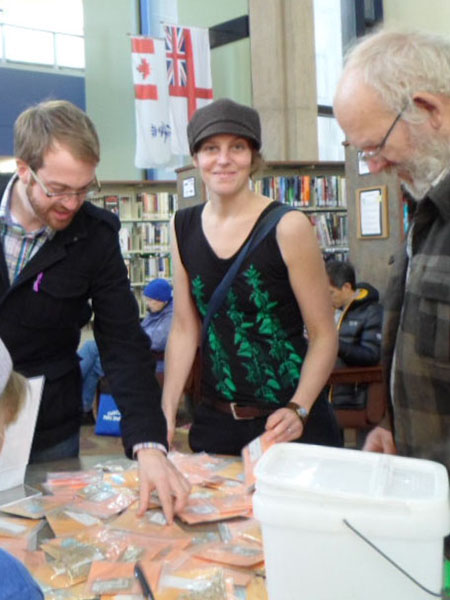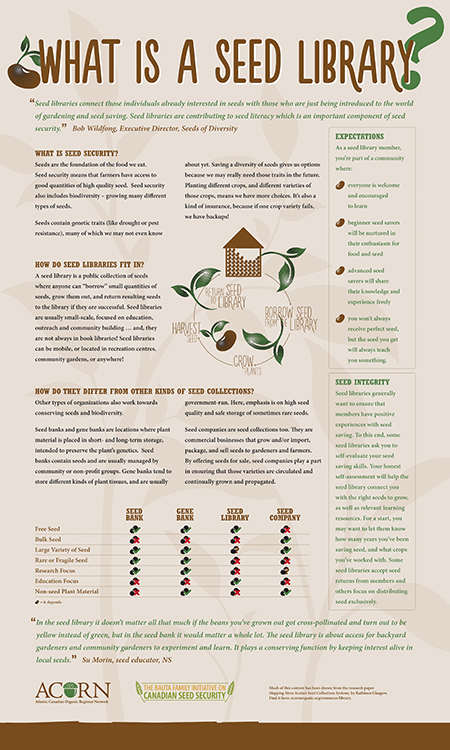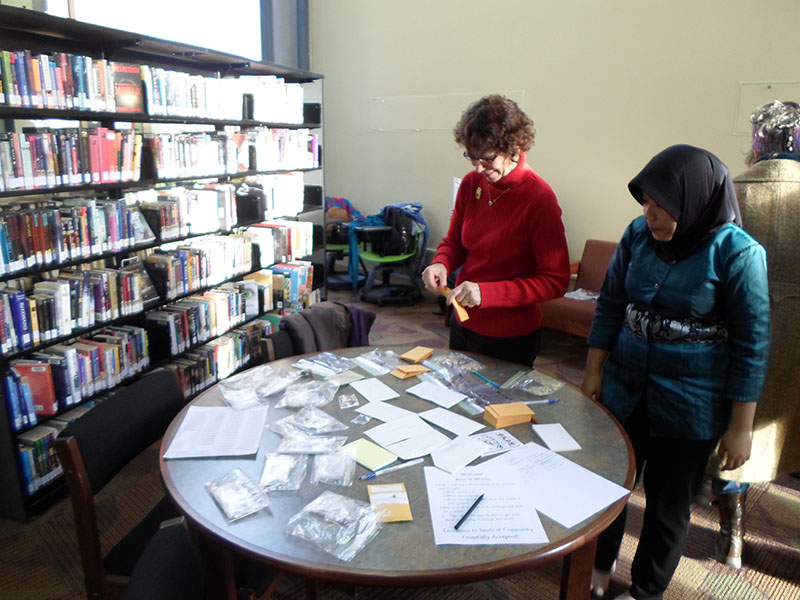Seedy Saturdays Provide Opportunities to Swap and Save Seeds
For many farmers, gardeners and engaged eaters, the international distress signal, SOS, could quite fittingly translate to Save Our Seeds. There is a worldwide movement afoot to do just that and it goes by the slightly dodgy moniker of Seedy Saturdays. These seed swapping events promote community-ownership of seed, based on the idea that access to seed is a human right.
The Cooper Institute, an education and community development centre, hosts Seedy Saturdays several times a year throughout Prince Edward Island. These events provide opportunities for home gardeners to donate or trade seeds, share their knowledge and celebrate the lynchpin of our food supply.
“We had a seed saving demonstration garden (at Desbrisay Community Garden) and a seed saving library in partnership with Heart Beet Organics, originally,” The Cooper Institute’s Josie Baker said, reviewing the organization’s early efforts in seed saving. Funding from the City of Charlottetown’s Community Micro-grant Program and from USC Canada as part of the Bauta Family Initiative on Canadian Seed Security provided the catalysts for these early projects.
“Then we started to do workshops on how to save seed from gardens and donate back to the seed library. We did this in collaboration with the PEI public libraries. The Confederation Centre Library hosted the first seed swap (or Seedy Saturday),” she said.
The Provincial Library System has proven to be a valuable partner in the Institute’s efforts to establish an Island-wide seed-exchange network. Donated seeds are accepted at any public library, then sent to the Confederation Centre Library for packaging and sent back to several public library branches to be given out. Those in search of seed for home gardening can visit a seed event or look through the binders at the Confederation Centre library from April to June to see what seeds are available.

Josie Baker of the Cooper Institute coordinates Seedy Saturdays submitted photo
“The point is that seed is a public trust or good, so having them available at the libraries makes them more available to everyone and ensures they are held by and for the community,” said Baker.
Baker highlights several reasons that saving seeds is important. For individual gardeners, seed saving demands a higher level of knowledge about the biology of the plants they are growing and how they pollinate. At a societal level, seed saving protects the diversity of food crops. In 2011 the National Geographic reported that 93% of fruit and vegetable varieties have gone extinct since 1903. This reduction in seed varieties is in large part due to the mass commercialization of food production and the innate demand for simplified crop production and maximized yields through the use of fewer varieties and hybrid seeds. Finally, and in part as a response to the increasing corporate control of seeds, there is a global movement to protect community food sovereignty, by ensuring seeds remain a public good rather than corporately-controlled. Concerns regarding genetic modification of seed also loom large in the seed sovereignty movement.
“We encourage people to bring seed that they have saved from their gardens and to label them,” Baker said. “The thing with seed, not everyone knows hybrid seeds can’t be saved – you don’t get what you started with. We have [sample packs of] seeds already packaged up and labelled by year and variety. This year our Seedy Saturday events in Montague and Summerside will include a screening of the film Seed: The Untold Story.”
“You’ll find pretty much whatever people bring – vegetables, flowers, and even tubers. Organic farmers may donate seed they didn’t end up using so sometimes we’ll have some less common seeds like mizuna (a Japanese mustard green).”
For beginners, Baker recommends starting with self-pollinators such as lettuce and peas or beans, which are especially easy because the seeds dry on the vine. Tomatoes are also great for beginners and the Institute offers workshops that cover the fermentation process involved in tomato seed saving.
Those without a green thumb or the desire to garden can still play a role in saving seed by supporting farmers that are growing non-hybrid varieties, giving gardening friends open-pollinated seeds from sources like PEI Seed Alliance, and spreading the word about the importance of saving seeds.

submitted photo
- TO SEE OR NOT TO SEE - March 31, 2018
- Constructing a Food Island - January 1, 2018
- Never a Dull Moment - December 1, 2017
- Accessorize Your Cutlery - December 1, 2017
- A Salty Christmas Shopping Guide - December 1, 2017
- Whatever Floats Your Goat - November 1, 2017
- Spirited Endeavours - November 1, 2017
- A Win-Win - November 1, 2017
- Planting the Seeds for Food Literacy - November 1, 2017
- Let’s Talk Food - November 1, 2017


